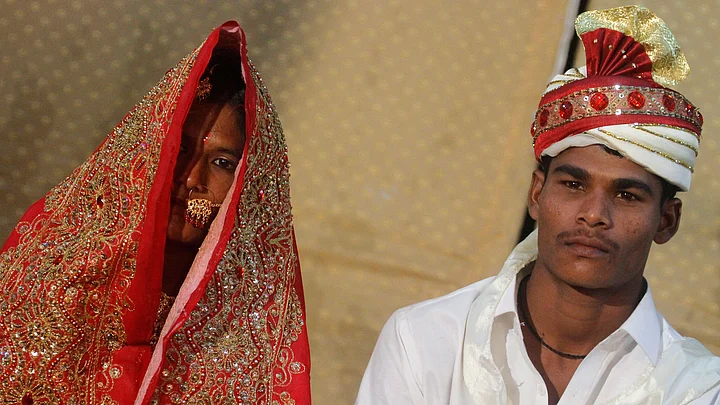Bill’s Fate Hangs in The Balance
- Hindu Marriage Bill to face Pakistan Parliament’s scrutiny after failing the test in 2008, 2011 and 2012
- Inheritance and adoption for Hindus in Pakistan are complicated processes due to the absence of a legal document
- The Bill awaits approval from the Pak government, which fears a backlash from conservative Muslim clerics
Pakistan’s government does endorse minorities as nationals, but its Constitution has no mechanism in place to regulate the birth and marriage registration of the minorities.
Pakistani Hindus have been among the worst sufferers of this non-regulation. They have been subjected to exploitation, neglect, and non-acceptance by hardliner groups, which has led to terrible incidents such as, kidnapping, rape and forced religious conversions and marriages of women belonging to the Hindu community.
Hindu Marriage Bill Awaits Consent
After three failed attempts during 2008, 2011 and 2012; Pakistan’s government is ready to float the idea again in its Parliament. The Hindu Marriage bill, moved previously, is awaiting consent from the members of the National Assembly before it can be imposed as a constitutional law.
The National Assembly Standing Committee on Law, Justice and Human Rights headed by Chaudhry Muhammad Bashir Virk will be reviewing the bill, presented last year by Dr. Darshan of Pakistan Muslim League – Nawaz (PML-N) and Ramesh Lal of Pakistan People Party (PPP).
The Hindu Marriage Bill aims to establish rules and regulations required to regulate birth, marriage and divorce of Hindu Pakistanis.
Currently, the Hindu minorities in Pakistan have no legal proof of their marriage which means that the Hindu Pakistanis cannot prove their marital status at home or abroad.
Further, Hindu women face problems even in claiming the body of their deceased husbands. Inheritance, adoption and other marriage-related issues also become complicated as there is no legal document or marriage certificate to identify the wife or the children as legal heirs.
A large section of the Hindu community, particularly women, does not have basic documentation to prove their marital status or identity. They are also deprived of legal rights such as inheritance, remarriage, separation, adoption of children and annulment of marriage. This legislation will institutionalize marriage and marriage-related legal rights thereof. This act is applicable to every person who is Hindu by his or her religion in any of its forms
- ‘Statement of Objects and Reasons’ (attached to the Bill)
The draft of the Bill, accessed by The Quint, also suggests the appointment of government registrars to maintain records of marriages and divorces of Hindu Pakistanis.
Why Is the Bill Stuck?
Dr. Ramesh Kumar, chairperson of the Pakistan Hindu Council (PHC) and a member of Pakistan’s National Assembly, has expressed serious concern over the government’s reluctance towards approving the Hindu Marriage Act 2014. Hindu Muslims, have at times, approached non-government religious bodies like Council of Islamic Ideology (CII), which represents at least 20 religious Muslims sects, for support to counter clerical opposition to the Hindu marriage laws, especially against forced marriages of Hindu women.
The legal ground and the crying social need for this Bill to be enacted are clear, but analysts believe Pakistan’s Parliament fears opposition from conservative Muslims, specially influential clerics, in Punjab and Sindh provinces.
The majority of Pakistan’s Hindus live in Sindh. But Sindh’s provincial government has been particularly slow and reluctant to address the approval or review of the Hindu Marriage Bill.
Sindh also has the highest rate of forced religious conversion of Hindu women to Islam. Analysts say the root cause of such conversions is the absence of legal cover, which is then exploited by conservative vested interests.
While the hopes of seeing “Hindu Marriage Act 2014” and “Hindu Marriage Bill” being approved by the Pakistani Parliament are very bleak; this remains the only way forward. Without these legal guarantees, the security, rights and identity of Hindu Pakistanis, who constitute 1.6 per cent of the country’s population, remain under threat.
(Writer is a broadcast journalist based in Islamabad)
